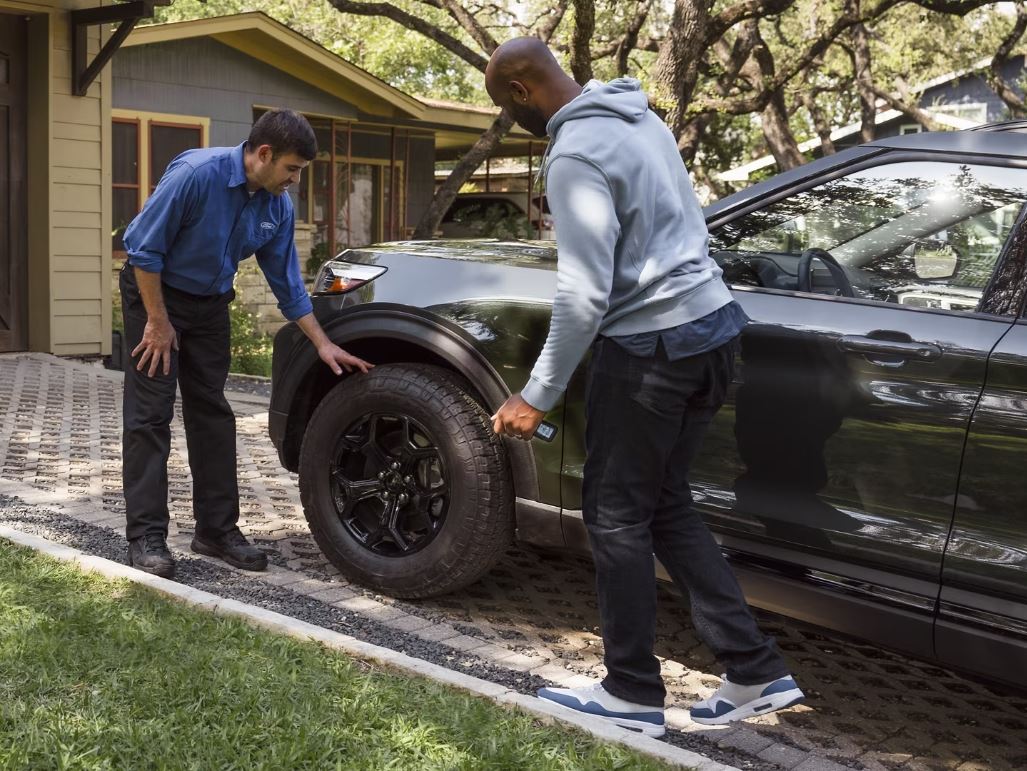
Maximizing Your Ford's Fuel Efficiency
When it comes to your Ford vehicle, one of the most important factors to consider is fuel efficiency. Not only does this help you save money at the pump, but it also contributes to a greener planet by reducing your carbon footprint. Fortunately, there are several simple steps you can take to maximize your Ford's fuel efficiency and get the most out of every gallon. Explore some practical tips and tricks with Phil Long Ford of Chapel Hills to help you achieve better mileage with your Ford vehicle.
Keep Your Ford Well-Maintained
Regular maintenance is the foundation of good fuel efficiency. It's essential to follow your Ford's recommended maintenance schedule to ensure that all components are functioning optimally. This includes oil changes, air filter replacements, tire rotations, and more. Neglecting maintenance can lead to reduced fuel efficiency and costly repairs down the road.
One crucial aspect of maintenance is ensuring that your Ford is running with clean oil and a clean air filter. Dirty oil and clogged air filters can cause your engine to work harder, leading to decreased fuel efficiency. So, make sure to change your oil and air filter according to the manufacturer's recommendations.
Check Your Tire Pressure Regularly
Proper tire maintenance is another key factor in maximizing fuel efficiency. Under-inflated tires create more rolling resistance, which requires your engine to work harder and burn more fuel. Over time, this can result in decreased mileage.
To combat this, make it a habit to check your tire pressure regularly, ideally every month. You can find the recommended tire pressure for your Ford in the owner's manual or on a sticker located on the driver's side door jamb. Keep your tires inflated to the recommended pressure to ensure they roll smoothly and efficiently.

Drive Smoothly and Avoid Rapid Acceleration
Your driving habits play a significant role in your Ford's fuel efficiency. Aggressive driving, such as rapid acceleration and hard braking, can significantly reduce your mileage. To maximize fuel efficiency, practice smooth and gradual acceleration and deceleration.
Additionally, maintaining a consistent speed on the highway can help you achieve better fuel economy. Use cruise control when possible, and avoid unnecessary speed fluctuations. Keep in mind that highway speeds above 55 mph can substantially decrease your fuel efficiency, so try to stay within the speed limit.
Reduce Excess Weight and Drag
Carrying unnecessary weight in your Ford can decrease fuel efficiency. Clean out your trunk and remove any items that you don't need for your trip. Roof racks and cargo carriers can also create aerodynamic drag, reducing mileage. If you're not using them, consider taking them off to improve your Ford's aerodynamics and fuel efficiency.
Use the Right Fuel
Using the correct type of fuel for your Ford is crucial for optimal performance and fuel efficiency. Check your owner's manual or the fuel cap for the recommended fuel grade. Using higher-octane fuel than required won't improve performance or efficiency and will only increase your fuel costs.

Plan Your Trips Wisely
Efficient trip planning can help you save both time and fuel. Combine errands to reduce the number of trips you need to make. Use GPS navigation or smartphone apps to find the quickest and most fuel-efficient routes to your destinations. Avoid rush hour traffic when possible, as stop-and-go driving can consume more fuel.
Embrace Technology
Many modern Ford vehicles come equipped with advanced technology features that can help improve fuel efficiency. Features like EcoBoost engines, automatic start-stop systems, and adaptive cruise control can all contribute to better mileage. Familiarize yourself with your vehicle's technology and use it to your advantage.
Consider Eco-Friendly Driving Accessories
There are various eco-friendly accessories available that can help boost your Ford's fuel efficiency. For example, a wind deflector or a bed cover for trucks can reduce aerodynamic drag. You can also invest in low-rolling-resistance tires, which are designed to reduce friction and improve fuel economy.

Monitor Your Fuel Efficiency
Keeping track of your Ford's fuel efficiency is essential to identify any potential issues or improvements. Many modern vehicles come with onboard fuel economy displays that provide real-time feedback. If your Ford doesn't have this feature, you can manually calculate your mileage by recording the number of miles driven between fill-ups and the amount of fuel used.
Seek Professional Advice
If you're looking to maximize your Ford's fuel efficiency and aren't sure where to start, it's always a good idea to consult with professionals. Visit your local Ford dealership or mechanic to ensure that your vehicle is in top condition. They can provide valuable insights and recommendations specific to your Ford model.
Maximizing your Ford's fuel efficiency is not only beneficial for your wallet but also for the environment. By following these tips and making a few adjustments to your driving habits and maintenance routine, you can enjoy better mileage and a more eco-friendly driving experience. Take care of your Ford, drive responsibly, and you'll be well on your way to getting the most out of every gallon of fuel.
Remember, a well-maintained and efficiently driven Ford not only saves you money but also contributes to a cleaner and greener planet for future generations. So, start implementing these tips today and watch your fuel efficiency soar while reducing your environmental impact.
-
Phil Long Ford of Chapel Hills
1565 Auto Mall Loop
Colorado Springs, CO 80920
- Sales: 719-413-6467
